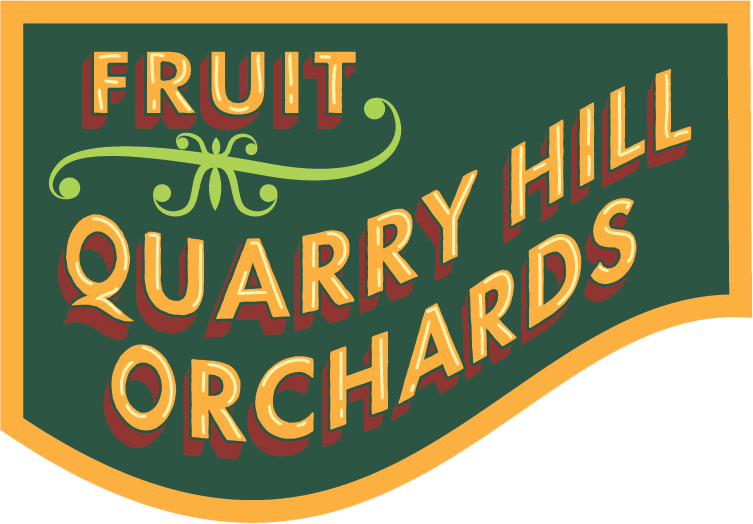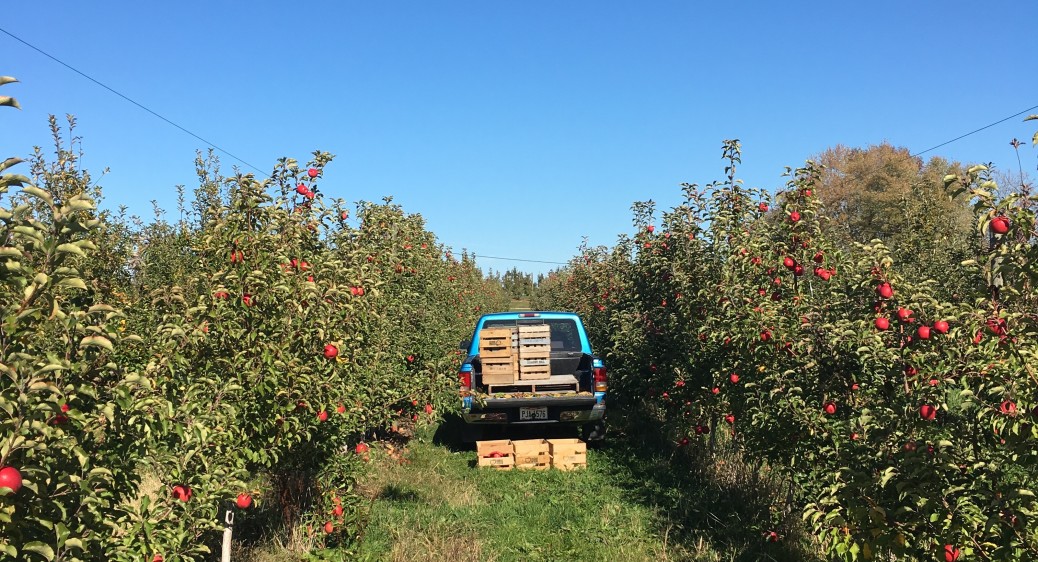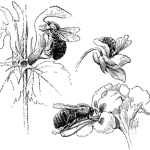 WILLIAM’S BULLETIN
WILLIAM’S BULLETIN
William is our newest farmhand, apprenticing in all things apples. He’ll be adding his thoughts, observations, and reports to this blog as he learns more. Stay tuned!
“OK, so the first question is, can you drive a manual transmission?” I didn’t say yes, but I knew not to say no. We were busy. The grading line was chugging away, dripping and steaming and rattling like any good piece of a-little-too-old-but-it-still-works machinery should. Down a few key hands, those on board were scrambling. Not much talking in the barn that day. Our on-line gift box store was on the verge of opening its e-doors, QuickBooks was growling, hungry for a teetering stack of invoices, and the Pink Lady bin out front was empty.
One thing about a farm is, you can predict everything and you can predict nothing. Pink Ladies, like most apples, are not like most apples. That is, what makes a Pink Lady a Pink Lady, and nothing else, is a specifically engineered set of characteristics, from the sugar-to-tannin balance (prickly, sharply sweet) to the color (a faint green field flushed ruddy red like windburned cheeks). The name is trademarked. When you get a Pink Lady, you know what you’re getting.
When you plant a Pink Lady, you follow the rules: trellis the trees so the branches catch more sun, and wait for the extra-long growing period. First to bloom and last to ripen, Pink Ladies take 200 days of good light. Northern Ohio gets as many clear-sky days as Austin — Pinks grow well here.
And so, under a deep clear blue November sky, I jumped into the pickup truck to get some. “Be sure to sample, so you know you’re picking the good ones,” Ben said, as I revved away in first gear.
Driving through corn country as a kid, I’d watch the rows rattle past the window: staring straight ahead, a blur; tracking them as they moved past, combed fields like record grooves in the earth. A dream, to walk through that biological Midtown of green walls. And now here I was, driving through the rows of trees, afraid to shift gears (no, I didn’t know how to drive manual — but I do now), mirrors slapping branches, bugs chirping their last before the winter hits, trees framing the sky, drowning in apples. The truck stalled, the world quieted, and I picked: twist and lift and place, gently, in my bag, then — gently — in a crate, then — gently — in the truck bed.
“We’ll get ‘em logged, graded, and boxed,” Ben said when I thudded to a stop back at the barn. Two hundred days of slowly soaking in the sun, blushing red, red, redder and then, one unpredictable afternoon, a thumping truck ride, a roll down an ancient conveyor, a grade, a name, and out the door. Time moves slow on an orchard, except when it doesn’t. The life of an apple changes fast. I’m just along for the bumpy ride.








